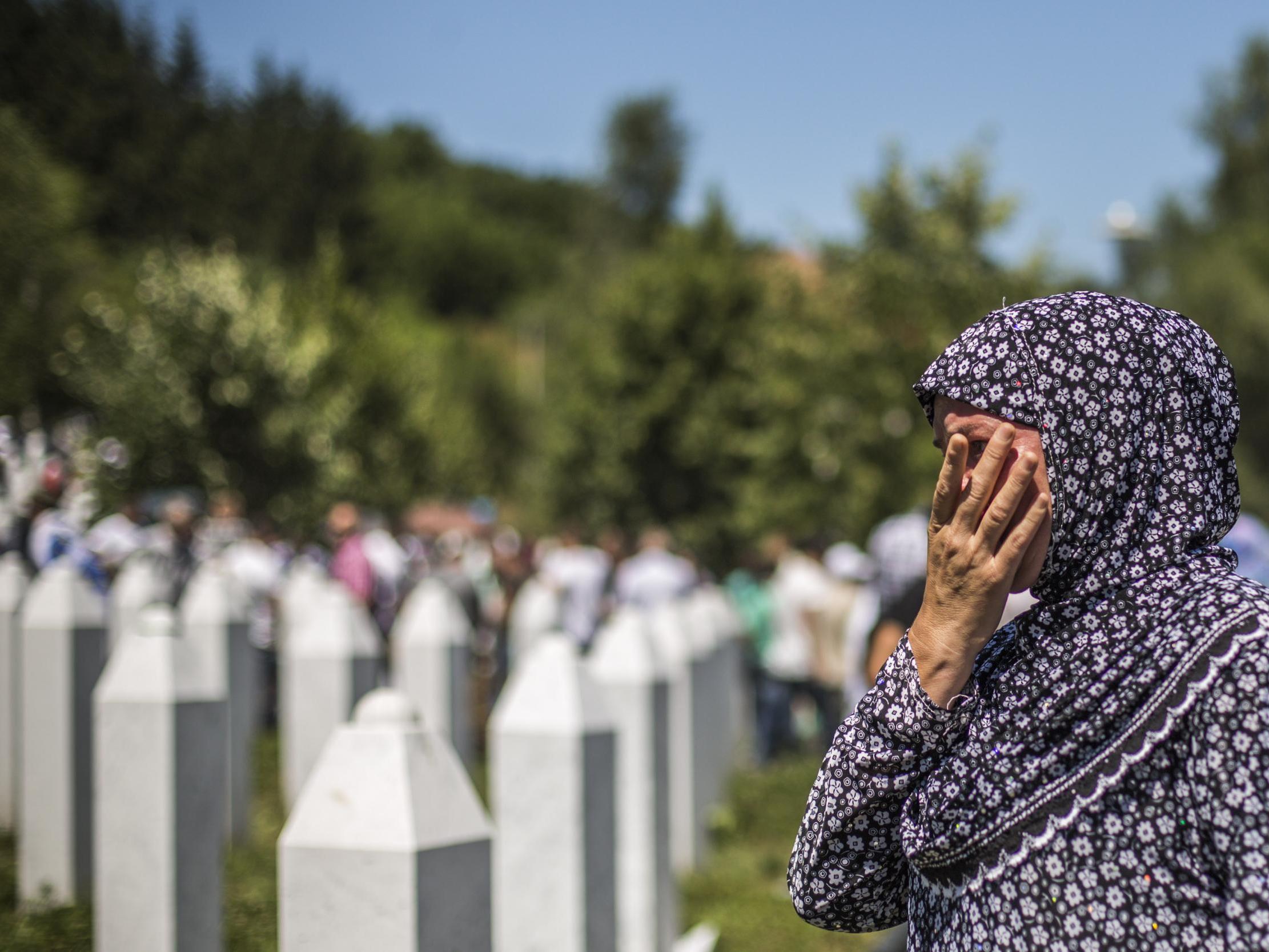The Srebrenica massacre anniversary should serve as a reminder – when we ignore atrocities, we do so at our peril
Twenty-five years later, the UK government is following a foreign policy with no strategy for confronting similar horrors head-on, writes Ray Collins


The genocide in Srebrenica in 1995 was one of the worst atrocities of the late 20th century. After four years of terror, the evil command of Ratko Mladic killed more than 8,000 innocent Bosniaks in a systematic and calculated massacre. World leaders watched on as hatred and intolerance grew into oppression, which culminated in mass murder. The price of a vacuum in global leadership.
The UK has an enormous influence on the world stage, with both the method and means to prevent suffering and pain. We also have the influence to shape a better future, and all that stops us from doing so is a lack of direction.
In the aftermath of Srebrenica, the world came together and agreed that each country must, above all, protect its own people. But in the years since, nations which once stood proud in defence of that principle have failed to react to similarly horrific events taking place beyond their own borders.
Poor leaders, overwhelmed by the task ahead of them, often fall into the trap of suggesting a binary choice: rather than promote and defend our values and interests on the world stage, we should focus instead on problems at home; of which there are undeniably many.
We can, however, do both. Politics does not present us with a mutually exclusive choice and the UK has a history of confronting evils across the world. In fact, part of the reason we should take our place on the international stage is that it benefits us to do so, creating a safer world in which to live. A right and proper course of action – albeit one that needs leadership and a clear strategy.
Take the situation in Yemen. We must direct an end to this war because the death of innocent children sickens us all and offends every value which we hold. But if world leaders fail to play a full and active part, the threat and ramifications will extend way beyond that country’s borders. The pain that people in Yemen are now living through each day could destabilise global politics, and fuel hatred.
The UK government could not be accused of inaction in Yemen, and to its credit has contributed fair amounts to the aid effort. But weak leadership and a failure to define the values behind our foreign policy has meant that any aid achievements have been cancelled out by our continued sales of arms to those involved in the same conflict.
The UK must provide global leadership to peacefully confront suffering anywhere it appears, and not just through acts of charity. So, we need a foreign policy built on the foundation that standing proud for our values is also in line with our interests. In addition to Yemen, ungodly horrors are also unfolding in Syria, the DRC, Venezuela, and other war-torn states. Our government, meanwhile, follows a foreign policy with no strategy for confronting these atrocities head-on – and it does so to the peril of us all.
It is easy with hindsight to say that global leaders could have prevented the Srebrenica genocide. A quarter of a century on and today’s events may come to be viewed with similar regret because a lack of direction plagues global players – the UK included. Instead of waiting to play that hindsight card again, they should stop failing people the world over, provide proper direction, and do all in their gift to fight on the diplomatic stage for their – and our – values.
Lord Collins of Highbury is a Labour peer
Join our commenting forum
Join thought-provoking conversations, follow other Independent readers and see their replies
Comments